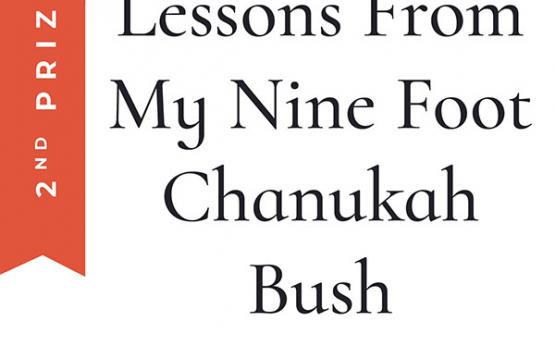
Introduction: In 1925, the newly formed International Hebrew Christian Alliance held its first conference, and yearly journals soon followed. The article was written to bring attention to the need to find a permanent home for the collection allowing our Messianic history, as recounted by those who lived it, to be told and retold. In 1934, Jewish followers of Yeshua in Nazi-occupied territory found themselves in a unique position. Isolated from their peers by faith in the Son of God, they were still equally persecuted and hunted. “The really unlucky Jews,” noted Rev. Nahum Levison, B.D., “are the non-practicing ones and those converted to Christianity. Neither side wants them.”
Holocaust experiences of Europe’s Messianic Jews are little known, yet well recorded, in the annual journals of the International Hebrew Christian Alliance (IHCA) – later renamed the International Messianic Jewish Alliance (IMJA). These weathered documents, also lost to public view, have been handed through time from one executive secretary to another.
Haunting stories abound in these old, dusty books. We find one young doctor – a Hebrew Christian trapped in Nazi Germany – who laments, “I am an outcast, no one will have anything to do with me … socially and spiritually … I am alone. Can you give me a chance to find some human companionship, some means of making a living?”
Ironically, belief in the very Name that separated them from their fellows served a lifeline. “Fear, despair, depression and melancholy. There was only one panacea against them – I want to emphasize it, only one – and that was trust in Jesus Christ, our Savior and Redeemer,” recalled Otto Samuel of his experiences in no less than nine camps. He recounts, “As we trusted in Him, our fears were quieted and life in the (concentration) camp became a school of inspiration.”
Shuffled from one internment hellhole to another, Samuel suffered release and then recapture as he fled from nation to nation. Remarkable as it sounds, this brave soul lived a faith that ministered to those around him. In one location he taught open-air Bible classes, in another he served as chaplain where, he recalls, “while going about my duties, [I] had to wear hip boots because of the mud and water.”
Messianic believers in free countries did what they could to help. “We have been able during the past six years to settle hundreds of our homeless Hebrew Christian brethren,” remarked one journaler. Armed with a Kingdom perspective, leaders of the movement hoped for the best. “It may be, by the grace of God, that the suffering of the Hebrew Christians in the midst of their Jewish brethren will be the seed of a nationwide movement Christ-ward,” considered Rev. Jakob Jocz Vice-President of the Polish Alliance.
Decades later, we know the results of such prophetic longing. With much of the Messianic movement in Europe wiped out, the costly blood of the martyred only served to increase an unbroken resolve: the same determination that continues to fuel the Messianic Jewish Movement today. These recorded stories of European Jews faithful to Yeshua, to death and beyond, are as sacred as those of Jewish Holocaust survivors in general, and become especially precious to our Movement’s collective memory.
To best chart where we are headed, we need to know from where we came. The inaugural International Conference of the IHCA held in September, 1925 in England, lends credence to the providence of God in the resilience of His Jewish remnant. Samuel Schor, President of the British Branch of the IHCA, witnessed to the miracle of Jewish people worldwide finding Yeshua – and each other – across time and space: “The Conference reported in this volume bridges the many centuries since Apostolic days,” and, “[it] drew sons and daughters of Abraham from the ends of the earth.”
Events covered in journals, originally published from 1925 into the 1960s, include theological discussions, essays, insights, poems and much more. Page-turners, the books reveal the thoughts, sights and words of their respective generations. With Judeo-Christian values under attack in the West as never before, it is imperative we hold fast to the foundation of our faith. Currently in storage, so personal a testimony deserves a permanent home where the archives will be properly preserved and made available for study, reflection and hope.






